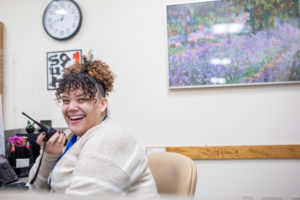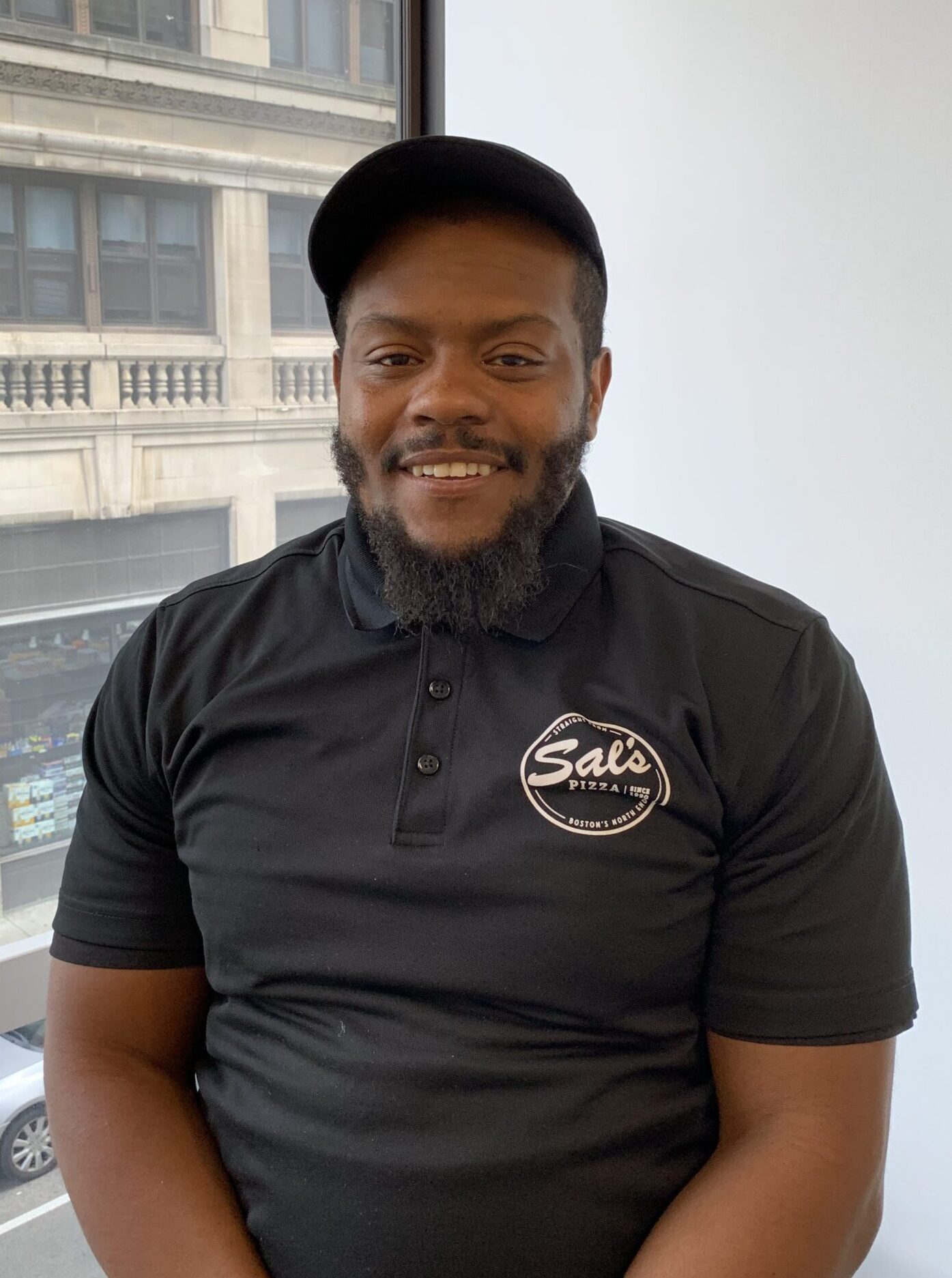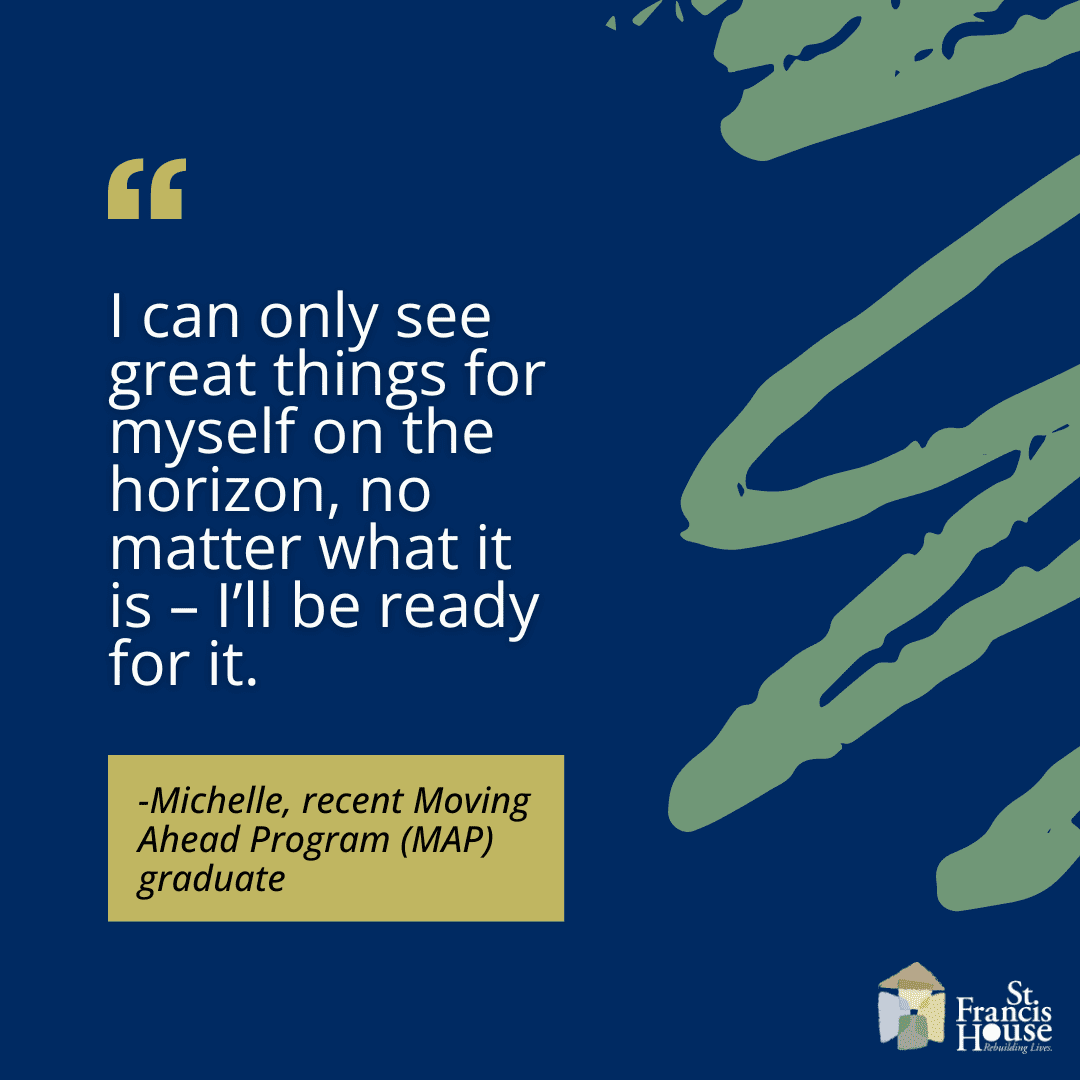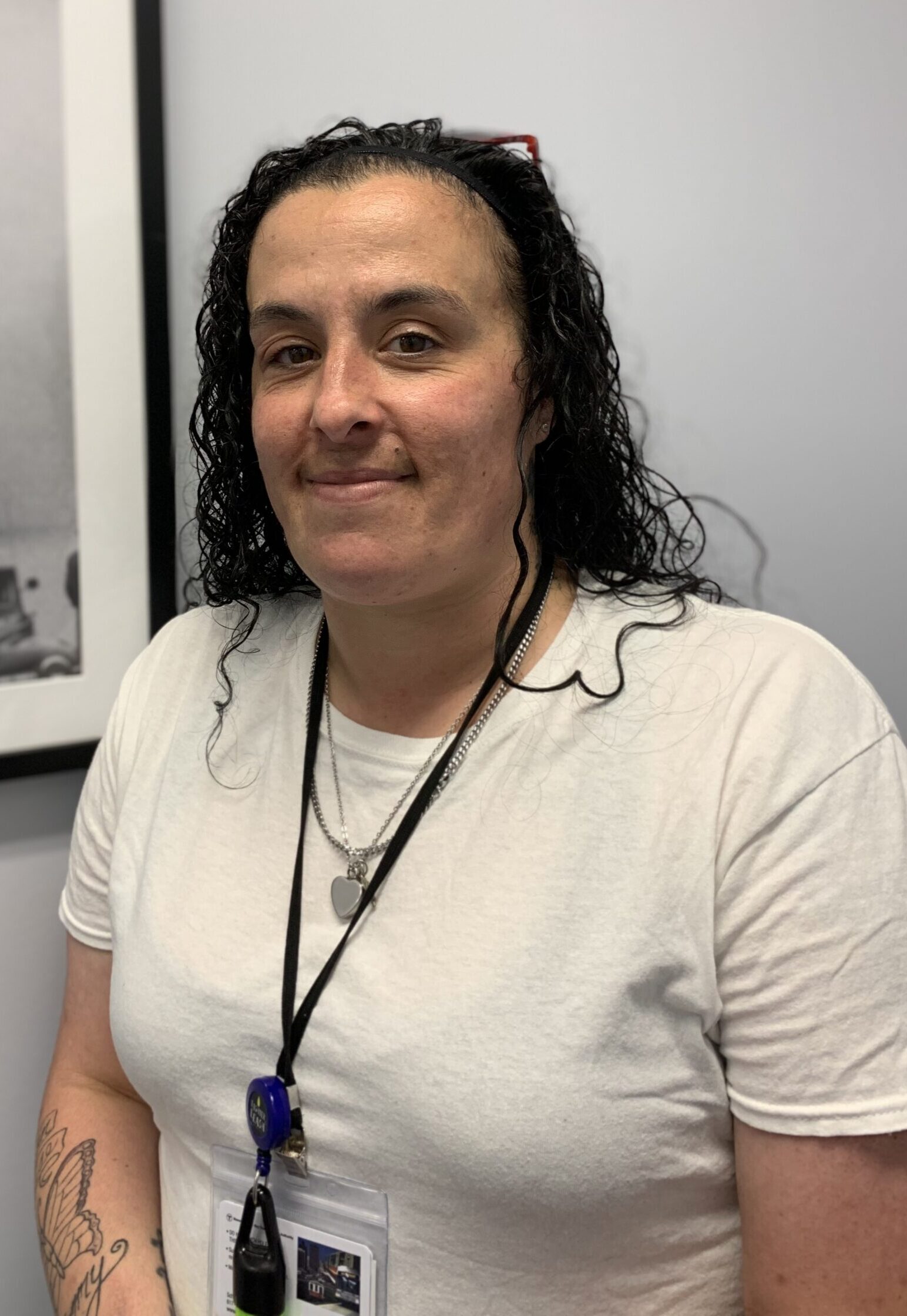People experiencing homelessness face a multitude of challenges. Many face the additional challenge of language as a barrier to accessing supportive services that would help them overcome homelessness. At St. Francis House we are working with LanguageLine Solutions to address this problem and better serve our non-English speaking guests. With LanguageLine’s interpretation and translation services in over 200 auditory languages and 40 visual languages, we will be able to effectively communicate with all of our guests to connect them with the services they need. We spoke with Rachel Shuman, Programs Assistant at St. Francis House, about how we will be using this service and the impact it will have on our guests.
Could you tell us about how LanguageLine works and how we’re going to use it?
If a guest walks into our building and needs an interpreter for any reason, our staff will be able to call a toll-free phone number specifically created for St. Francis House and get in touch with a live interpreter within 2 minutes. Staff will simply be prompted to select the language they are needing an interpreter for (if staff are not sure, there is an option available to help figure out the language the guest speaks), state the staff member’s name, and provide a quick synopsis of what the conversation is going to be about.
As an example, if I was working with a guest and called for an interpreter, I could say “My name is Rachel, I’m working on case management with a guest and we’re working on a housing search today.” Just something short to orient the interpreter. The interpreter will introduce themselves and at that point, we would put the phone on speaker so everyone can hear each other, and the interpreting can begin. The guest and I would speak to each other as per usual, just making sure to pause every few seconds to allow the interpreter to translate.
There’s also a LanguageLine application that our incredible IT team has downloaded onto all of their devices that provide video interpretation for visual and not spoken languages. The languages available are listed in English as well as the native language, so staff and guests can select whatever language is needed for interpretation and connect to an interpreter over video in minutes.
They also have a service where you can schedule an in-person interpreter. For example, if a guest who needs an interpreter has a court hearing and the court will allow them to bring their own interpreter, we can schedule an interpreter to show up in court for that date and time to support our guest.
For the translation service, we can send over any documents or fliers or things we want to be translated into any language. They have a very extensive, thorough process of translating those documents for us and then they’ll send them back.
In terms of how we would use it, we imagine it will be most helpful for our case management team, our housing team, and guest engagement liaisons. Anyone in a guest-facing role who helps actively engages with guests in supportive services will be utilizing this service.
What does a service like this mean to a guest who doesn’t speak the language that our staff does? What does it unlock for them?
The hope is that it eliminates the language barrier altogether, or at least to a significant extent, so guests can easily access our services. Additionally, our team can use it as a tool to support our guests in interacting with other organizations and agencies. Our staff can go with a guest who doesn’t speak English and call the interpreter on the phone and be able to support that guest through processes that were previously unavailable to them.
St. Francis House is the only place in Boston that offers a multitude of services [like meals, clothing, recovery services, workforce development, and housing] all in one place. It opens a lot of doors in that way. All of our services are now accessible in a multitude of languages in one place and that’s what sets us apart.
How has the implementation gone so far?
It’s still pretty new but so far it has gone well. It’s straightforward, especially since most of the staff will be using it on the phone in their office with guests. It is a little bit of a transition because we have to let the guests know that the service is available. We have posters at the front desk that list all of the languages we now have available so if a guest needs a language for interpretation, it’s right there and they can let us know as soon as they walk in.
Why is it especially important for St. Francis House, as a homeless shelter, to have access to this resource and this level of accessibility?
For a few reasons. One is that we have historically been relying on our bilingual and multilingual staff members who have been extremely generous with their time supporting other staff and guests by acting as a step-in interpreters. So, in that aspect, those staff will get some of their time back to focus on their work, which is valuable.
Also, language is such an incredible barrier in terms of accessing housing, income, behavioral health, and mental health support. That barrier can exacerbate the cycle of homelessness and push people into chronic homelessness, whereas that may not have been the case if that individual spoke English and could access supportive services from the start. The burden really falls on and should fall on, the service providers to break down that barrier and support non-English speaking guests. Homelessness doesn’t discriminate based on the language you speak, and the services should reflect that. St. Francis House having this service is incredibly important in helping our guests move toward our theory of change goals as well: housing stability, income stability, and behavioral health stability. It’s an invaluable accessibility tool for us to have to ensure individuals are not further marginalized within the population because of the language they speak inside our doors.



